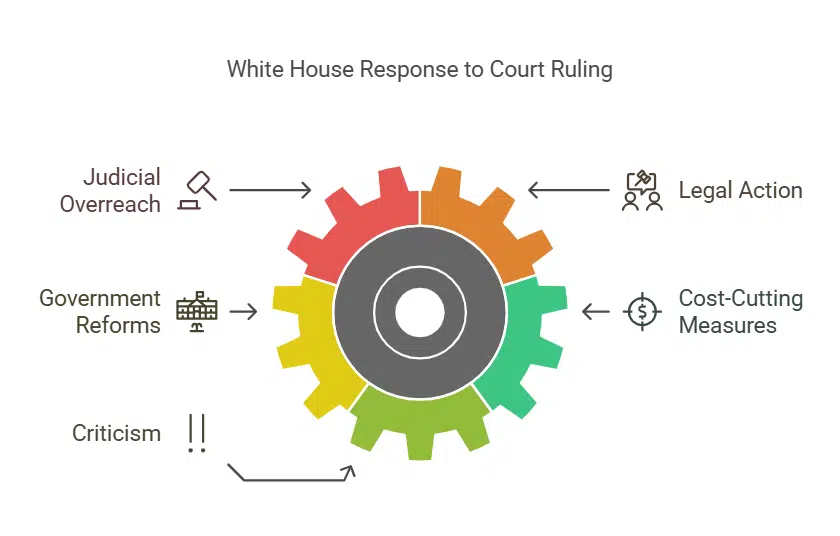A U.S. federal judge has temporarily restricted Elon Musk’s government efficiency team from accessing a critical Treasury Department payment system, citing potential security risks and the likelihood of “irreparable harm.” This decision adds to ongoing legal challenges faced by the Trump administration over its attempts to streamline federal operations through controversial restructuring efforts.
Court Order Blocks DOGE from Treasury System
In an early Saturday ruling, U.S. District Judge Paul Engelmayer placed a temporary block on Musk’s Department of Government Efficiency (DOGE) from accessing the Treasury Department’s sensitive payment system. This system is responsible for distributing a vast array of financial disbursements, including U.S. tax refunds, Social Security benefits, disability payments, and the salaries of federal employees.
Judge Engelmayer’s order also mandated that any data accessed or downloaded by DOGE since January 20 be immediately destroyed. The judge justified his decision by highlighting the potential risk of disclosing sensitive and confidential financial information. He further emphasized that DOGE’s access increased the system’s vulnerability to cyber threats, which could have far-reaching consequences on millions of Americans who rely on these payments.
State Attorneys General Challenge Trump Administration’s Initiative
The court order was issued in response to a lawsuit filed by New York Attorney General Letitia James and 18 other state attorneys general. The lawsuit argues that Musk’s team, which consists of young associates categorized as “special government employees,” was unlawfully granted access to Treasury systems that were previously restricted to authorized government personnel. The state attorneys general contend that this access was not only unauthorized but also poses a significant risk to the privacy and financial security of American citizens.
The lawsuit specifically warns that allowing DOGE members access to such a critical financial infrastructure could result in a misuse of power. The states argue that the involvement of individuals with no prior experience in handling government financial transactions could lead to mismanagement, breaches of privacy, or even the potential manipulation of funds.
A hearing on the matter has been scheduled for February 14, where both parties will present arguments regarding the legality and security risks of DOGE’s involvement.
White House Condemns Ruling as ‘Judicial Overreach’
The White House responded swiftly to the court ruling, expressing strong disapproval and calling it an act of “judicial overreach.” White House spokesperson Harrison Fields released a statement criticizing the lawsuit and the judge’s decision, claiming that the legal action was an attempt to hinder much-needed reforms.
“Grandstanding government efficiency speaks volumes about those who’d rather delay much-needed change with legal shenanigans than work with the Trump administration to rid the government of waste, fraud, and abuse,” Fields stated.
The administration has positioned DOGE as a key component of its broader strategy to drastically cut federal spending and eliminate bureaucratic inefficiencies. However, critics argue that these cost-cutting measures are being implemented recklessly, without proper oversight or safeguards.
Elon Musk Defends DOGE’s Role and Treasury Access
Following the court ruling, Elon Musk took to social media to defend DOGE’s access to the Treasury payment system. He stated that DOGE and the Treasury Department had “jointly agreed” on essential government payment requirements to ensure better financial oversight.
“All outgoing government payments have a payment categorization code, which is necessary in order to pass financial audits,” Musk wrote in a post. “The above super obvious and necessary changes are being implemented by existing, long-time career government employees, not anyone from @DOGE. It is ridiculous that these changes didn’t exist already!”
Musk’s statement implies that DOGE’s involvement was merely procedural and that existing government personnel were leading the effort. However, legal experts and watchdog organizations argue that even minimal access by non-government employees to such a sensitive financial system could pose significant risks.
Concerns Over Security, Data Privacy, and Political Ramifications
The Treasury payment system serves more than 250 federal agencies and is crucial for distributing benefits and salaries to millions of Americans. Critics fear that DOGE’s access could expose personal financial data to increased risks, including cyberattacks and data breaches.
Cybersecurity experts have voiced concerns that expanding access to this system without proper checks could make it easier for hackers or bad actors to exploit vulnerabilities. The lawsuit filed by the attorneys general explicitly warns that the presence of DOGE members in sensitive government systems presents an “unprecedented security risk” to the states and their residents.
Beyond cybersecurity concerns, the legal battle over DOGE’s access has intensified political tensions between the Trump administration and Democratic-led states. While the administration argues that its efforts are aimed at reducing federal waste, opposition leaders claim that these moves are attempts to dismantle government institutions without proper justification.
Broader Legal and Administrative Challenges to Trump’s Government Overhaul
The judge’s decision is just the latest in a series of legal setbacks for the Trump administration’s efforts to restructure federal agencies. In a separate ruling late Friday, another federal judge blocked the administration’s attempts to dismantle the U.S. Agency for International Development (USAID).
Additionally, a federal judge halted a Thursday deadline for the administration’s buyout offer to federal employees. The buyout proposal, which sought to offer early retirement and severance packages to government workers, is currently under legal scrutiny for its potential violations of labor laws.
Earlier court rulings have also paused the administration’s sweeping federal spending freeze, citing concerns over its potential impact on critical government services. Taken together, these legal battles indicate strong pushback against the Trump administration’s broader push to reorganize the federal workforce and government spending policies.
What Comes Next?
The legal proceedings surrounding DOGE’s access to the Treasury system are far from over. The scheduled hearing on February 14 will be a pivotal moment in determining whether Musk’s team will regain access to the payment system or face further restrictions.
If the court ultimately rules against the Trump administration and DOGE, it could mark a significant blow to the administration’s plans to restructure federal agencies. On the other hand, if DOGE is allowed to continue its involvement, it could set a precedent for increased private sector influence in federal financial operations.
Regardless of the outcome, the case highlights ongoing tensions over the future of government efficiency, data security, and financial oversight in the U.S. government.
For now, federal agencies, state governments, and millions of Americans await the next chapter in this high-stakes legal battle.





































